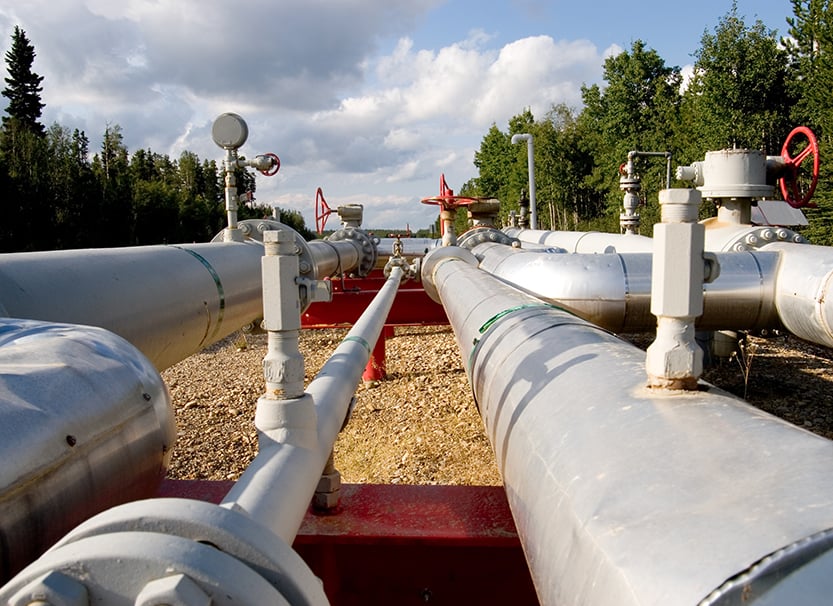
New York Court Orders NYDEC to Issue Climate Change Regulations by February 2026
On October 24, 2025, a New York trial court ordered the New York Department of Environmental Conservation (NYDEC) to promulgate regulations addressing climate change pursuant to the state’s 2019 Climate Leadership and Community Protection Act, 2019 N.Y. Sess. Laws Ch. 106 (S. 6599) (CLCPA). The court sided with environmental groups that argued that NYDEC’s failure to issue these rules violated a mandatory statutory duty, despite the agency’s arguments that such rules would be “infeasible” because of costs imposed on consumers. With the order requiring promulgation of the rules by February 6, 2026—mere months away—stakeholders should watch closely for details on upcoming compliance requirements.
The Trump Administration’s Pushback Against a Global Shipping Carbon Levy
The International Maritime Organization (IMO), the United Nations agency tasked with regulating global shipping, has proposed an international carbon pricing scheme on shipping. The maritime shipping sector has increasingly faced global scrutiny as the contributor of 3% of global greenhouse gas emissions, and IMO’s proposed mechanism would serve as the first global emissions pricing mechanism affecting the shipping sector.

Council on Environmental Quality Issues Long Awaited Guidance for Environmental Review Across Agencies
On September 29, 2025, the Council on Environmental Quality (CEQ) issued long-awaited guidance to formalize agencies’ individual efforts to implement the National Environmental Policy Act (NEPA). After rescinding the CEQ regulations that shaped NEPA for 40+ years and bearing witness to various agencies’ independent efforts to issue their own NEPA rules, CEQ issued new guidance to more systematically guide the agencies’ efforts. As CEQ notes, “NEPA implementation reform now has been called for, authorized, and directed by all three branches of government at the highest possible level: Congress, the President, and the Supreme Court.” The guidance reflects direction from each.
D.C. Circuit Upholds U.S. EPA’s HFC Cap-and-Trade Program Under AIM Act
On August 1, 2025, the U.S. Court of Appeals for the D.C. Circuit upheld the U.S. Environmental Protection Agency’s (EPA) authority under the American Innovation and Manufacturing (AIM) Act to phase down hydrofluorocarbons (HFCs) through a cap-and-trade program. In IGas Holdings, Inc. v. EPA, No. 23-1261, a unanimous panel rejected constitutional and administrative law challenges from refrigerant industry members, finding that the AIM Act provides a clear “intelligible principle” to guide EPA’s allowance allocation. The Court also held that EPA’s decision to exclude 2020 market data from its allocation methodology was not arbitrary and capricious.

H.R.1: What You Should Know About the Environmental and Energy Provisions in the “One Big Beautiful Bill” Act
On July 4, President Trump signed H.R.1—the “One Big Beautiful Bill,” referred to as the OBBB—into law. This sweeping tax and policy law, enacted through the process of budget reconciliation requiring a simple majority vote by Congress, carries significant implications for environmental funding, clean energy development, and climate-related programs administered by the U.S. Environmental Protection Agency (EPA), as well as the tax code. Much of the provisions affect programs and funding originally authorized under the 2022 Inflation Reduction Act (“IRA”), which was former President Biden’s signature budget reconciliation bill. Below, we outline some of the key features of the OBBB environmental and energy provisions.
Congress Eliminates Corporate Average Fuel Economy (CAFE) Penalties for Passenger Cars and Light Trucks
In one of its many changes, the One Big Beautiful Bill Act, enacted on July 4, 2025, eliminated civil penalties for noncompliance with federal fuel economy standards. Specifically, Section 40006 of the Act amends the language of the Corporate Average Fuel Economy (CAFE) statute to reset the maximum civil penalty to $0.00. Although the statute and its implementing regulations otherwise remain in place, this amendment removes any civil penalties for producing passenger cars and light trucks that do not meet fuel economy requirements.

Agencies Collectively Move to Overhaul Environmental Review Regulations
On July 3, 2025, numerous federal agencies initiated an effort to revise the manner in which they comply with the National Environmental Policy Act (NEPA). NEPA, a cornerstone of environmental governance and project development in the U.S., has historically been implemented through regulations from the Council on Environmental Quality (CEQ). The DC Circuit questioned the legality of those regulations, as well as CEQ’s authority to implement them. And at the direction of President Trump’s February 25, 2025 Executive Order 14154 — “Unleashing American Energy” — CEQ rescinded its NEPA implementing regulations. In place, CEQ provided guidance for agencies that instructed them to update their NEPA procedures by February 2026 in a manner consistent with recent statutory amendments that prioritizes “efficiency and certainty over any other policy objectives.” Today, we are getting our first glimpse into what that process will look like.
EPA Updates Clean Air Act Standards Applicable to Small Waste Incinerators
On June 30, 2025, the U.S. Environmental Protection Agency (EPA) finalized updates to its New Source Performance Standards (NSPS) and Emission Guidelines for Other Solid Waste Incineration (OSWI) units under the Clean Air Act (CAA). These units — combustion systems that incinerate solid waste from commercial or institutional sources not otherwise regulated under specific incinerator categories — include very small municipal waste combustors and institutional incinerators. The final rule includes applicability-related and definitional changes expanding the class of incinerators subject to NSPS, revises the OSWI subcategories and tightens emission limits for key pollutants. It also adopts changes to startup, shutdown, and malfunction (SSM), and expands testing, monitoring, reporting, and recordkeeping requirements that will affect both existing and new OSWI units.

FERC Accelerates Natural Gas Infrastructure Expansion Through Key Waivers and Rulemaking
On January 20, 2025, President Donald J. Trump issued Executive Order No. 14156, Declaring a National Energy Emergency, which directed federal agencies to “identify and use all relevant lawful emergency and other authorities available to them to expedite the completion of all authorized and appropriated infrastructure [and] energy . . . projects.” On June 18, 2025, in alignment with this Executive Order and in response to two petitions filed by the Interstate Natural Gas Association of America (“INGAA”), the U.S. Federal Energy Regulatory Commission (“FERC”) advanced a package of regulatory actions aimed at accelerating the development of natural gas infrastructure.
EPA Proposes to Rescind Two Biden-EPA Fossil Fuel-Fired Power Plant Rules
On June 11, the EPA proposed two Clean Air Act (CAA) rules that would affect fossil-fuel fired electric generating units (EGUs). One rule would repeal greenhouse gas (GHG) standards under Section 111 and the second would repeal the 2024 EPA amendments to the mercury and air toxics (MATS) standards. The proposed rules are a part of the current administration’s stated goal to promote U.S. energy by reducing regulation of the power sector. The EPA estimates that, together, the two rules will save more than $1.3 billion in regulatory costs per year. Here are five key takeaways from these proposals.


